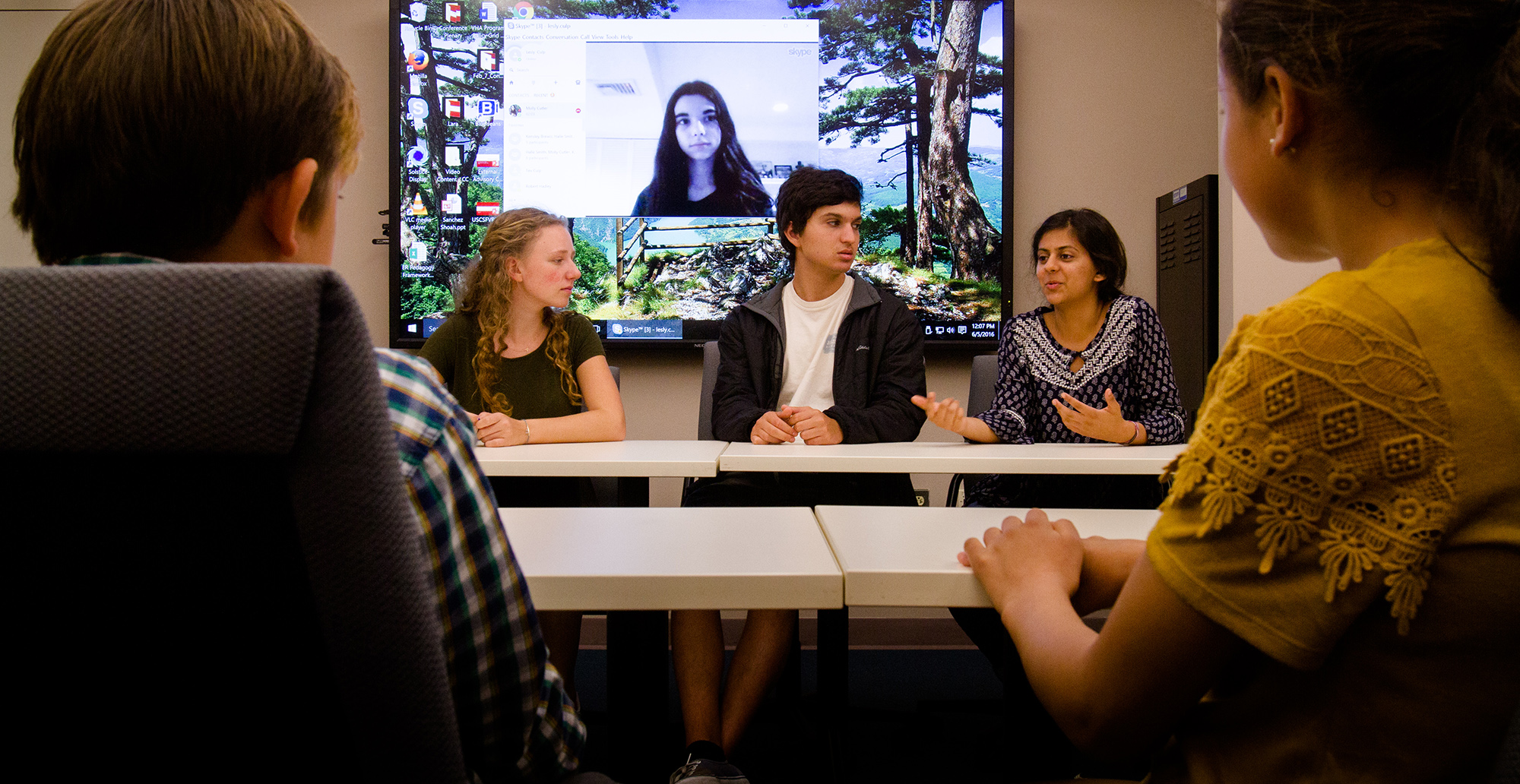Third Year of Junior Intern Program Kicks Off at USC Shoah Foundation

Every month, once a month, between October and June, a group of grade school students will meet at the USC Shoah Foundation Institute for Visual History and Education’s home at USC’s Leavey Library.
These young students, now one meeting into their internship, are this year’s USC Shoah Foundation’s Junior Interns, who will spend the next several months engrossing themselves in analyzing what attitudes breed hatred and intolerance, how they can spread positive moral authority and how to become an active participant in civil society, using USC Shoah Foundation’s IWitness activities and the Visual History Archive.
The Junior Interns, all seventh grade and above, are predominantly California residents, but some commute virtually for the opportunity. In her application, Evelyn Stumpff, a high school sophomore from England, said she has always been interested in history - particularly in the Holocaust and how interpretations of the genocide vary from source to source.
“The difference between how the narratives vary from author to author fascinate me,” Stumpff said. “And this internship [is] an excellent place to hear some of the truest interpretations of the events, as it involves hearing stories from those who lived [the events]. Getting to actually speak to the fading generation of people who lived through this tragedy and others like it is a rare opportunity...and I would love the chance to be a part of chronicling history."
Some of the objectives of the program are to help students to learn about the different types of memory - personal, collective and cultural - that lend themselves to remembering genocide events, and to help the interns begin to cultivate digital and media literacy skills and apply them to their IWitness activities as they watch and learn from the Visual History Archive testimonies.
The program, designed by the education department of USC Shoah Foundation, will also ask the interns to consider what connects people as human beings, and what causes the disconnect that leads to violence and genocide.
Soojin Yeo, a senior in California, never knew the vast implications of the Holocaust as a student in South Korea. But when she came to America and visited the Los Angeles Museum of the Holocaust, she was moved to tears.
“Seeing [images] of the Holocaust with my own eyes changed things,” Yeo said in her application. “It was no longer just a story or a history lesson - it was life.”
For her, the Visual History Archive and other outlets that showcase testimonies in a compelling way can be devastatingly powerful.
“I am excited to use my creativity while learning and working on the stories of those who have suffered through genocides,” Yeo said. “If we can show their stories in a compelling way, we can know that we are working towards a world in which these horrific tragedies do not happen again.”
In the subsequent months, interns will have the opportunity to visit, either physically or virtually, museums and authentic sites, and contribute to the work of the Institute through their research. They will also craft and deliver presentations on what they’ve learned, interact with Institute staff and have ample opportunity to make social impact and work with people of diverse backgrounds and cultures with the interpersonal communication skills they’ll be taught throughout the program.
“The USC Shoah Foundation Junior Intern program will help mold me into an individual who is ready to fight for humanity,” Nicholas Chavez, a senior from California, said in his application. “And it will also provide me with the tools to educate others while promoting human rights and social justice. I feel it is my duty to start conversations about injustices and work to find permanent solutions.”
Upon completion of the internship, Junior Interns will receive a certificate and community service hours, as well as the option to continue engaging with the Institute as program assistants or Student Ambassadors.
To follow along with the interns’ work, check out the hashtag #IWitnessJrIntern.
Like this article? Get our e-newsletter.
Be the first to learn about new articles and personal stories like the one you've just read.